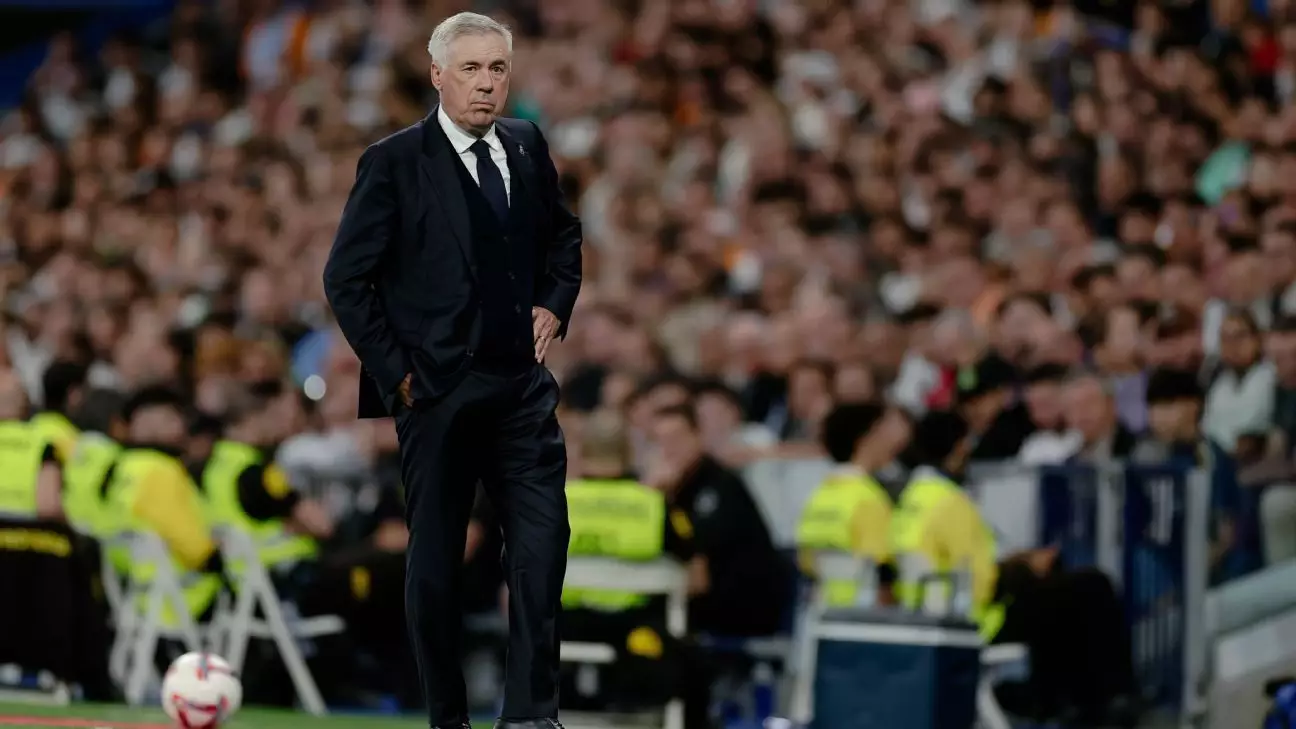In recent weeks, Spain faced a staggering humanitarian crisis, as Valencia was rocked by devastating flash floods that claimed the lives of at least 217 individuals. This catastrophe stands as one of the most serious natural disasters in Spain’s modern history, resulting in widespread destruction that has affected thousands of homes and businesses. In the face of such tragedy, Real Madrid’s head coach, Carlo Ancelotti, expressed profound sorrow and called for a suspension of all football activities in the country, a sentiment that echoed the concerns of various players and coaches across the league.
Football, while being an integral part of Spanish culture, is increasingly being scrutinized in light of the social and ethical responsibilities it carries. The decision to postpone some matches, like the LaLiga game between Real Madrid and Valencia, while allowing others to continue, raises significant questions about the morality of sporting events amid national tragedy. The divide in action by LaLiga, which opted to collaborate with organizations like the Red Cross to aid those affected rather than halt all matches, became a focal point for players’ frustration.
Ancelotti’s comments at the news conference reflect a deep-seated frustration among players, who often feel powerless when it comes to voice decisions affecting their world. The criticisms from coaches such as Diego Simeone were not merely personal grievances; rather, they were rooted in a shared ethical viewpoint that strongly questioned the appropriateness of continuing with competitive football during such distressful times. This sentiment indicates an awareness among athletes of their position in society and the influence that football has in either uplifting or diminishing the weight of collective grief.
The coach condemned the decision-makers who ultimately determine the scheduling of matches, pointing out that, despite their emotional state, players are often expected to compartmentalize their feelings and perform. This ideal of professionalism becomes increasingly difficult to maintain when the societal context around them is riddled with mourning. Ancelotti encapsulated the dilemma succinctly by stating, “Football has to stop. Because it is the most important of the least important things.” This phrase lays bare the heart of the struggle: the recognition that, in moments of widespread suffering, the passion for football must yield to the greater need for compassion.
The reactions from Real Madrid’s players, including defender Lucas Vázquez, emphasize a critical aspect of contemporary sports: the interplay of leadership, ethics, and community. It is apparent that, while players may wish to voice their opinions, they often feel sidelined when it comes to actual decision-making. This expectation to suppress personal feelings in the name of professionalism reflects a deeper issue concerning the governance of sports. The role of coaches and players is constrained within a system that prioritizes profit, viewership, and the spectacle of games over ethical considerations.
Athletes often carry the weight of expectations not only from fans but also from powerful institutions that drive the league. Their silence regarding their discomfort with continuing matches speaks volumes about the environment they operate in, where emotional expression is seen as a hindrance to performance. As the debate continues regarding the ethical implications of playing the game in such difficult circumstances, the conversation must extend beyond the immediate actions to include a thorough reevaluation of how leadership in sports should respond to broader societal implications.
As Spain continues to navigate the aftermath of the floods, the discourse surrounding the continuation of professional football sheds light on an essential truth: sports cannot exist in a vacuum. The relationship between football and society is deep and intricate, and when tragedy strikes, it is not merely a backdrop for entertainment but a reminder of shared responsibility and humanity.
Carlo Ancelotti, along with players and coaches, is right to bring focus to the emotional ramifications of such decisions. The future of sports governance may depend on how players, coaches, and leagues choose to interact with the realities of the communities they serve. Engaging in challenging conversations and advocating for the empathetic approach to sports might ultimately redefine the role of football in society — not just as a source of entertainment, but as a platform for solidarity and healing in the face of adversity.

